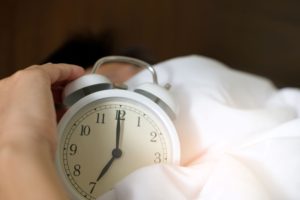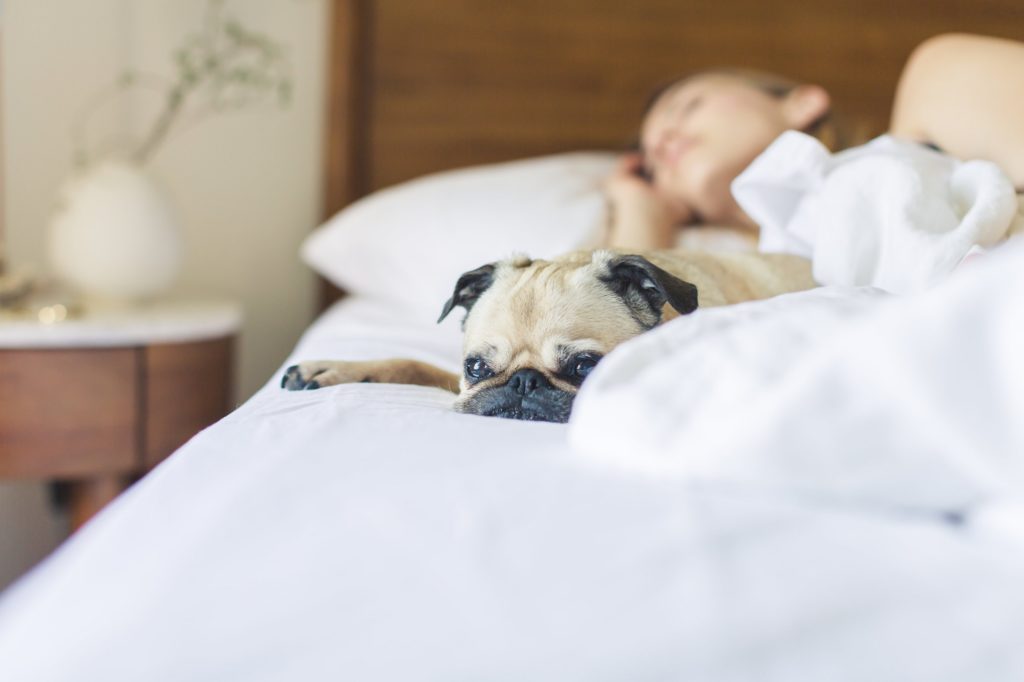How did you sleep this past week? Did you wake feeling refreshed, without an alarm, or did you shuffle sluggishly for your morning dose of caffeine? If you’re like the two-thirds of adults in developed nations, you probably answered “no” to these questions. According to the United Nations, 66% of us fail to achieve the recommended 8 hours of sleep per night. Though this number is astounding, the impact that this may be having on our health is even more astonishing.

As more and more research is being conducted in this area, we are beginning to scratch the surface concerning just how important our sleep is. How important? Well, we know that a lack of sleep demolishes our immune systems, increasing our risk of cancer two-fold. Insufficient sleep has been linked to Alzheimer’s disease and has the effect of weakening coronary arteries and increasing risk of heart disease, stroke and heart failure. As if the previous weren’t enough, sleep disruption contributes to all major psychiatric illnesses including anxiety, depression and suicidality. It isn’t an exaggeration therefore to make the connection between shorter sleep and a shorter life span. Put another way, sleep may be the most effective “treatment” for health that we have.
A ton of other material has already been written on the impact of sleep loss however, and this is not the objective of today’s post. The idea here is to give readers useful strategies that they can get started on today. A disordered pattern of sleep can be extremely difficult to change, but stay the course, educate yourself and literally add years to your life!
I would be remiss, in any discussion about sleep, if I didn’t discuss two very important concepts: homeostatic drive (how sleepy we feel) and circadian rhythm (our day/night cycles). For the sake of time, I have included a video description of these concepts which can be accessed below:
At least a passing understanding of these concepts is vital because it underlies subsequent treatment for insomnia and “why we do what we do” for treatment. *Subscribe to the channel for more psychology related information in the future – It would also really help me a lot 😊*
https://www.youtube.com/watch?v=sepPBEWvb2U

If you’re experiencing significant difficulty with sleep loss, my immediate advice would be to do the following:
- Talk with your doctor/general practitioner as soon as possible. Sleep loss can be due to any number of reasons that your doctor can begin to follow up with. Sleep apnea, for example, is a common reason for sleep disruption that can often be remedied with a doctor’s referral. Beware of prescriptions for sleeping pills before other avenues have been investigated. Emerging evidence suggests that sleeping pills (actually sedatives) disrupt our brain’s ability to produce large, deep brain waves (collectively referred to as Non-REM sleep). They also come with some nasty side effects including next-day grogginess, day-time forgetfulness and slowed reaction times during the day (particularly dangerous when you hop into your car to drive). This is to say nothing of perhaps the worst side effect…. rebound insomnia. As anyone who has every tried to come off them will attest, this often means NO sleep… at all…. For days.
- Consider engaging the services of a psychologist whom is trained in cognitive behavioral therapy (CBT) for insomnia, or CBT-I. As it turns out, many of us are engaging in behaviors that are not helpful for sleep and this specialized form of CBT can help by altering these unhelpful behaviors and addressing anxieties associated with sleep. They also come with very few side effects (relative to their medication counterparts) and are supported by current research. A recent meta-analysis comparing sleeping pills to CBT-I found the latter to be superior overall (Smith et al., 2002).
Follow these tips for a better sleep:
- Stick to a sleep schedule. Human beings are creatures of habit and, generally, we do not adjust well to changes in our sleeping pattern. Try to go to bed at the same time (or close to it) every night, as well as to wake at the same time every day. If you have difficulty with losing track of time in the evenings, try setting an alarm to get ready for bed.

- Avoid nicotine and caffeine. Depending on the person, and daily water intake, research suggests that caffeine can take up to 8 hours to exit your system. Don’t drink coffee at night? Certain teas as well as chocolate can contain caffeine and make sleep very elusive. Like caffeine, nicotine is also a stimulant and can cause a lower quality of sleep in smokers…. Don’t do it.
- Avoid alcohol. This one is difficult for me as I confess, I love the odd nightcap. Though having a drink before bed may help us to relax, research suggests that heavy usage can severely hamper our ability to attain REM sleep and keeps us in the lighter stages of sleep. One thing I also notice with my own sleep is that I wake earlier after a night of drinking; this is common as the effects of the alcohol wear off.
- Avoid large meals and beverages late at night. A light snack is ok, but it goes without saying that a big plate of spaghetti and meatballs before bed is a bad idea; the indigestion from this will certainly interfere with sleep. Beverages can also hamper sleep by causing frequent urination and fractured sleep overall.
- Exercise is awesome, at the right time. Exercise is great, just make sure that it isn’t happening too late in the day. Exercise increases our body temperature which is the exact opposite of what our bodies do to prepare for sleep (they need to cool). As a rule, try to avoid exercise 2-3 hours before you plan on sleeping.
- Avoid napping in the afternoon. Naps can be great for catching up on lost sleep, but if we nap too late in the afternoon it can make sleep at night difficult. Avoid napping after 3 PM.
- Plan to relax before bed. Sleep isn’t something that we can force, unfortunately. It is something that we need to fall into, and this is where planning to relax before bed comes in. Relaxing activities should be part of your sleep routine. Listen to music, read a book, do a sudoku or crossword puzzle, just make sure it is something low key.
- Take a hot bath before bed. I really like this one and find it to be particularly helpful in my own life. The “science” behind it is simple. Our body temperatures naturally decline as we prepare for sleep. We can induce this artificially by increasing our body temperature (via the bath) and then allowing our body to do its work and cool off. As our temperature declines, we get tired, and sleep is accomplished much easier. Try it a couple of hours before you plan to sleep.
- Get in the sun. Sunlight exposure is key to regulating our circadian rhythm (our day/night cycle). Spending at least 30 minutes in the sun daily can be very helpful for this and the earlier in the day that you can, the better. Go for that walk or jog in the morning and dim the lights in your house as you prepare for sleep at night.
- Make your room a cave. You’ve likely heard this before but get rid of anything that has the potential to mess up your sleep. This includes electronic devices and alarm clocks that often emit an ungodly amount of light; if you must keep the alarm, turn the face away from you, or put a light towel over it to reduce the light emitted. Our rooms need to be dark and cool as well so use blackout curtains and consider air-conditioning or a fan to assist in the cooling process.
- If you can’t sleep, get out of bed. 20 minutes. If you can’t fall asleep in this amount of time, or are finding that you’re becoming stressed or worried, get out of bed. Go sit somewhere quiet and engage in something low-key and relaxing (see tip #7 above). If you are having difficulty with your mind racing in the evening, or you are worried about what you must accomplish the next day, I highly recommend Scheduled/Planned worry time. Essentially at least 2 hours before you plan to sleep, sit down for 20 minutes and write, think, plan and problem solve… allow yourself time to worry. When this time is up, close the book and engage in relaxation before bed. Once in bed, engage in stimulus control and do not allow yourself to worry about the things that you have already planned for.

I hope that there is some information in here that you find to be helpful. Realize that lasting change to sleep takes time AND may be the most important thing that we can do for ourselves. Be patient and keep grinding, even small changes can add up over time.
Thanks very much for taking the time to read this and please feel free to contact me at brandon@www.elevationprocess.com if you have any questions.





